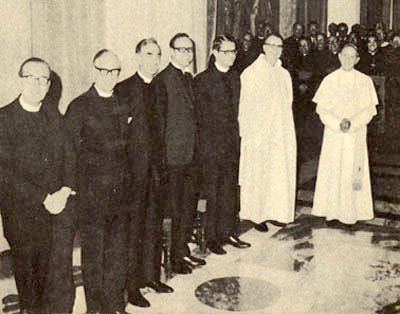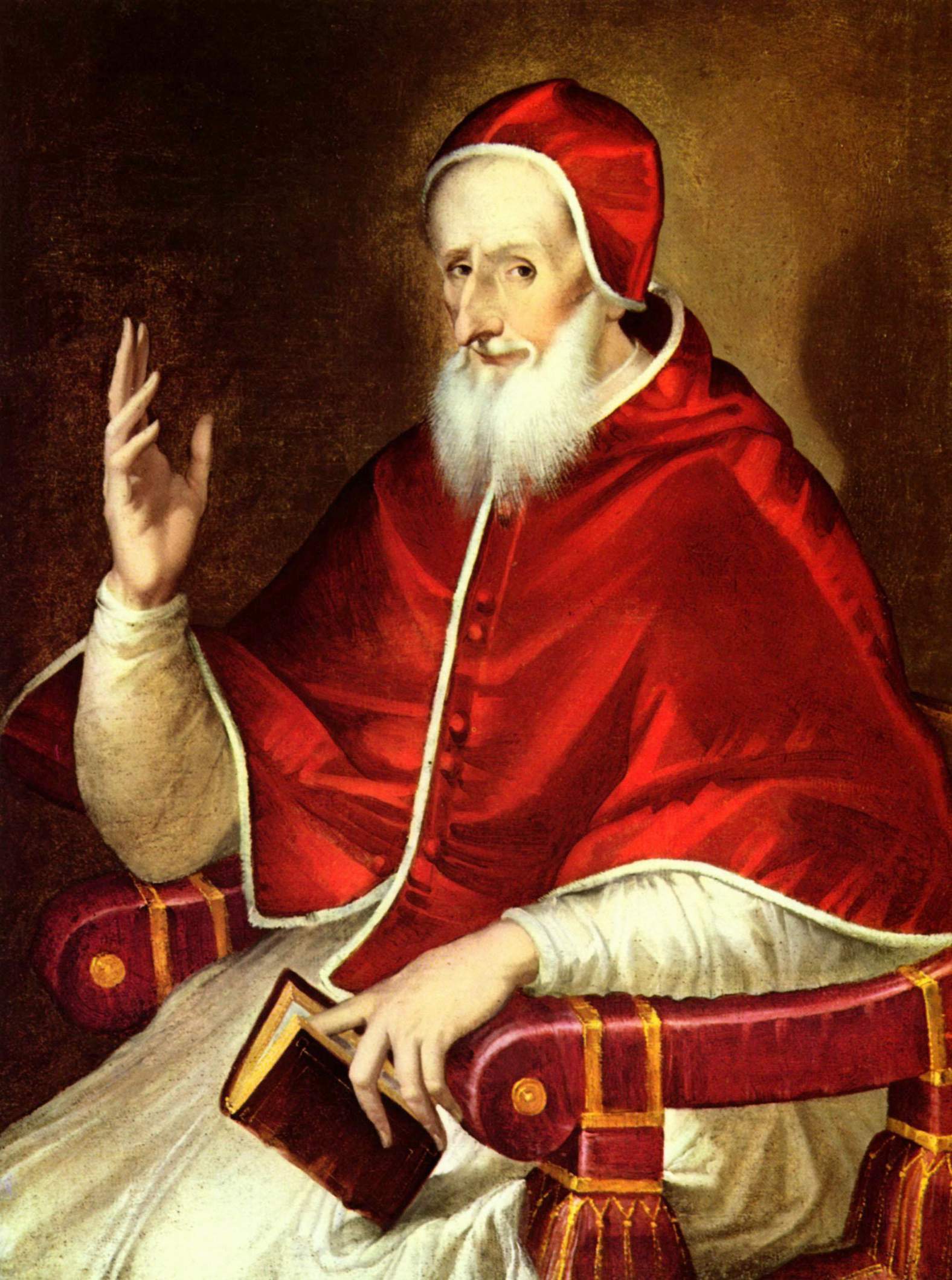The New Mass Is Not
The Roman Catholic Mass
/395_FrJony09.jpg)
The New Mass was created with the help of 6 Protestants Ministers.

When I stopped as a Novus Ordo Mass goer, people told me that
I am no longer a Catholic. I asked them “Are you saying that those who are not
going to Mass every Sunday are not Catholics anymore? They could not answer because they don't also go to the New Mass on Sundays. People who go to the Traditional
Latin Mass are accused as non-catholic, schismatics or excommunicated. When I
asked them “Can you show to me the Bull of Excommunication that proves that I
am excommunicated?” They could not give because their accusations are all
lie due to their ignorance or lacked of information.
Because of these issues, I am encouraged to share the
information which may help them realize their ignorance:
 The Traditional Latin Mass is the Mass
instituted by Our Lord Jesus Christ. This is the Mass that has been handed down by the
Apostles, the Saints, Martyrs and by Catholic Popes throughout the ages.
The “form” of its consecration was made by Christ and is recorded in the Gospel with the support of
Apostolic Tradition.
The Traditional Latin Mass is the Mass
instituted by Our Lord Jesus Christ. This is the Mass that has been handed down by the
Apostles, the Saints, Martyrs and by Catholic Popes throughout the ages.
The “form” of its consecration was made by Christ and is recorded in the Gospel with the support of
Apostolic Tradition.
The Council of Trent solemnly declared anathema that it is a heresy to say that any pastor in the Church, whosoever he may be, has the power to change the traditional rite into a new rite.
Council of Trent: Session 7 Canon 13:
"If anyone says that the received and approved rites customarily used in the Catholic Church for the solemn administration of the Sacraments can be changed into other new rites by any pastor in the Church whosoever, let him be anathema."
The Traditional Mass is the mass where the
priest faces the altar with the Images of Saints, Crucifix and the Tabernacle.
The Mass is said in the sacred language of the Church which is Latin.
It has been perpetually the teaching of the Church that Catholics are bound to their customary rite.
Pius XII, Mediator Dei, 1947, Sec. 60:
The use of the Latin language prevailing in a great part of the Church affords at once an imposing sign of unity and an effective safeguard against the corruptions of true doctrine. Pope
 The Traditional Latin Mass cannot be altered,
changed, abrogated, removed, abolished, or replaced by another modern kind of
liturgy because it was instituted by Our Lord Jesus Christ. Furthermore, it
cannot be abrogated due to the Papal Bull “Quo Primum” issue by Pope St. Pius V according to the infallible
declaration of the Council of Trent.
Those who changed and abolished It in the Parishes are guilty of the
heresy of modernism. Therefore, they are the ones who are excommunicated.
The Traditional Latin Mass cannot be altered,
changed, abrogated, removed, abolished, or replaced by another modern kind of
liturgy because it was instituted by Our Lord Jesus Christ. Furthermore, it
cannot be abrogated due to the Papal Bull “Quo Primum” issue by Pope St. Pius V according to the infallible
declaration of the Council of Trent.
Those who changed and abolished It in the Parishes are guilty of the
heresy of modernism. Therefore, they are the ones who are excommunicated.
His Quo Primum decree not only declared that this Mass was to remain unchanged for all time, but it forbade the introduction of the New Mass. If anyone in the future would ever dare to change that Mass, let them know, so the Pope continues that not only will they be automatically excommunicated from the Church, but that the very vengeance, the curse of Almighty God will rest upon them and their work.
"By this our decree, to be valid in perpetuity, we determine and order that never shall anything be added to, omitted from, or changed in this Missal. . .At no time in the future can a priest, whether secular or order priest, ever be forced to use any other way of saying Mass. And so as to preclude once and for all any scruples of conscience and fear of ecclesiastical penalties and censures, we herewith declare that it is in virtue of our Apostolic Authority that we decree and determine that this our present order and decree is to last in perpetuity and can never be legally revoked or amended at a future date. . . And if anyone would nevertheless ever dare to attempt any action contrary to this order of ours, given for all times, let him know that he has incurred the wrath of Almighty God and of the Blessed Apostles Peter and Paul."
The Mass is the supreme act of worship of God, Who is above time, language, and culture. The focus and end of the Mass is to give to God the honor and reverence due to Him. For centuries, a Catholic could attend Mass anywhere in the world and always find it the same. Were it possible to travel in time, the same would still hold true. A Mass offered by a Catholic priest living in Rome in 570 would be nearly the same as that offered by one offered in the same city in 1570. Moreover, that Mass offered in 1570 would be the same as one offered by a priest living in Russia in 1920 or in the Philippines in 2015. This fact reflects clearly two of the four marks of the Catholic Church — its unity and catholicity, both in regard to location and time.
Catholics are able to go to Mass anywhere because of Latin. The use of Latin in all countries that followed the Latin rite across the centuries is a bond of unity in the Church. Whether the parish is Filipino or German or French, whether you are in the United States, Italy, or China, a Catholic can find the same Latin Liturgy. From pole to pole, no Catholic is a foreigner anywhere because he could enter a Catholic Church and hear the same ceremonies in the same language and mingle his voice with those of his brothers and sisters. I mean, a Catholic from the Philippines could go to Mass anywhere in the world -- Argentina, China, Italy, France-- and experience the same Mass in the same way. The Filipino could look at the Italian man in the pew next to him and know that both are on the same page, hearing the Latin but each understanding in his own language. They might not be able to speak to each other after Mass, but both of them, during the liturgy, are participating in the same supernatural Sacrifice, praying with the angels in the same language and in a manner thousands of years old.


No comments:
Post a Comment
Note: Only a member of this blog may post a comment.